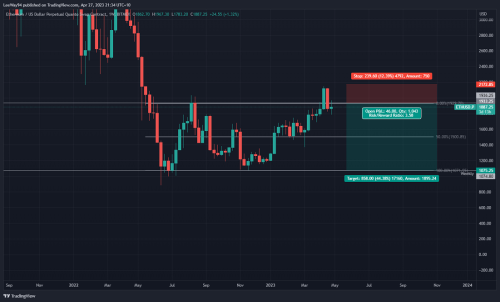Defining the Game
‘Game Theory’ is a buzz word often thrown around by projects but put simply, it’s the study and analysis of how we make decisions and how those decisions influence outcomes among competing players. Many situations in our lives can be looked at through the lens of game theory such as business management to even moral dilemmas. It aims to provide a mathematical and objective framework to guide our decision making.
A major reasons people will fail in game theory, is not understanding the type of game they are playing. Context is everything and you cannot possibly apply the right strategies if you do not properly understand the game that you’re in.
To be clear, the ideas being expounded in this article barely scratch the surface of game theory, but nonetheless can provide principles to make yourself a more successful investor.
Finite vs Infinite
Finite games, as the name suggests, have clear definitions of what will bring the game to an end and identify clear winners and losers. Sport is a perfect example of a finite game. There is a pre-defined limit on how long the game will go for and conditions that must be met to determine the outcome.
Infinite games do not have clearly defined boundaries. In most cases, competitors continue to play until one party either lacks the resources or the desire to continue playing. Business is a fantastic example of an infinite game. The rules are constantly changing, the game is never ‘over’ when someone reaches number one and whilst competitors may drop out over time, new competitors will inevitably rise to keep the game going.
Investing fits into the category of being an infinite game. We continue to participate until we either run out of resources (money) or desire (psychological strain) to keep going.
So What?
Let’s put these ideas together now.
Investing is an infinite game where you play until you either run out of funds or can no longer withstand the psychological pressure of continuing to play.
So it seems clear that in order to be a successful investor you need to:
- Minimise your losses so you don’t run out of funds
- Strategise so you can psychologically handle how much risk you are taking
- Outlast other participants to increase the likelihood that you will come out on top.
Enter the Minimax Strategy.
The Minimax Strategy
The Minimax Strategy outlines that one should establish their play to minimise their maximum loss in a worst case scenario. In other words, if you lose a trade, the loss you suffer to your account is minimised. How you define your ‘maximum loss’ is up to you and your risk appetite. It is established by asking the question, ‘how much can I afford to risk before my portfolio is affected too much and I won’t be able to mentally handle it?’
An example for me personally came as part of my journey learning to trade. My positioning is set up so that if the trade fails, I lose no more than 1% of my trading account, thus reinforcing the importance of risk to reward (but we’ll discuss that another time).

In the example displayed here (not an actual trade), your position size would be calculated such that IF your stop loss was hit, the loss to your account is only 1%. If your RR is 3:1, you only have to win 25% of your trades to break even.
Defining your maximum acceptable loss allows you to do the following:
- Set boundaries on how much capital you are willing to lose so you don’t blow too much in one go.
- Clearly know what is at stake so you are less likely to be psychologically swayed into panic decisions
- Increase your longevity in the market since you can’t be wiped out in one fell swoop.
Summary
As the old adage goes, successful investing is more about time in the market than timing the market. Remember the story of Richard Dobatse? His stint in day-trading saw him turn a $15K account into $1 million only to then lose it all in one go.
His mistake? He didn’t properly understand the game he was playing. As such, he did not have the appropriate strategy to manage it all and the psychological toll was immense. His story is one of many. Anybody can get lucky and make money from the market – but without the right strategy, you will inevitably give it all back.
It starts with understanding the game.


